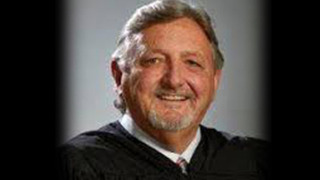I’ve been following the story of Judge Casey Moreland, who, as you may recall, has been involved in a number of shenanigans. The latest thing discovered by the Channel 4 I-Team is this:
The Channel 4 I-Team has learned that a member of the Davidson County General Sessions Drug Court treatment team also runs eight halfway houses where judges send defendants for court-ordered treatment.
These halfway houses charge each resident $140 per week in rent, which means each house, located in Madison, brings in about $5,000 a month in rent. And there are allegations that residents were assigned maintenance on the houses as part of their community service.
You can see what a great deal this is for Moreland’s friend, Lyn Noland, who heads up the program. She has a business. Her friend orders people to use her business. She then gets $5,000 a month in rent on each home. Of course, some of that probably goes to pay the mortgage, but the part that would go to upkeep on the house the non-profit gets to keep because they have residents do the maintenance for free.
It’s a pretty good gig.
But I’ve noticed something over the years that I’ve been writing about Tennessee. What makes someone a “good” person has a lot more to do with class standing than it does with good behavior. You can see this in how we treat poor people — always trying to catch them doing something wrong by drug testing them or scrutinizing what they eat or making policies that seem to assume they’re just too lazy to work or work better jobs. We just presume poor people are not good people or, duh, they wouldn’t be poor.
And here we have a group of people who, yes, have done something bad enough that they’ve ended up in court, but their underlying problem isn’t moral. It’s addiction, an illness. And though few of us would say out loud that people with illnesses deserve whatever happens to them, when it comes to addiction, well, if the place that’s supposed to be helping them exploits their labor for free — in other words, steals their labor from them — well, they’re bad people, so who cares?
And the people who are forcing them into this particular business, which will then steal their labor, are “good” because they’re rich and powerful and well-meaning. So, whatever they’re doing must be okay, because they’re good people.
It seems like we have it backwards. You’d think that, when you see a person doing a bunch of good deeds and making people’s lives easier, that would tell you they’re a good person. But we tend to assign people into the category of “good person” and then whatever deeds they do, by definition, must be good deeds.
And in this particular case, it’s difficult to suss out who is doing good. Obviously, people helping other people deal with addiction issues are doing a good thing. But is it good that Moreland is funneling people to his friend Nolan’s business so she can profit off of their misery? And is it good that she allegedly steals labor from the people Moreland has sent to her? After all, many of them are really, really helped by their stays there.
I don’t see easy answers, but I think acknowledging that there are no easy answers would be better than how we currently work, where we just assume that the good people are always doing good things.





